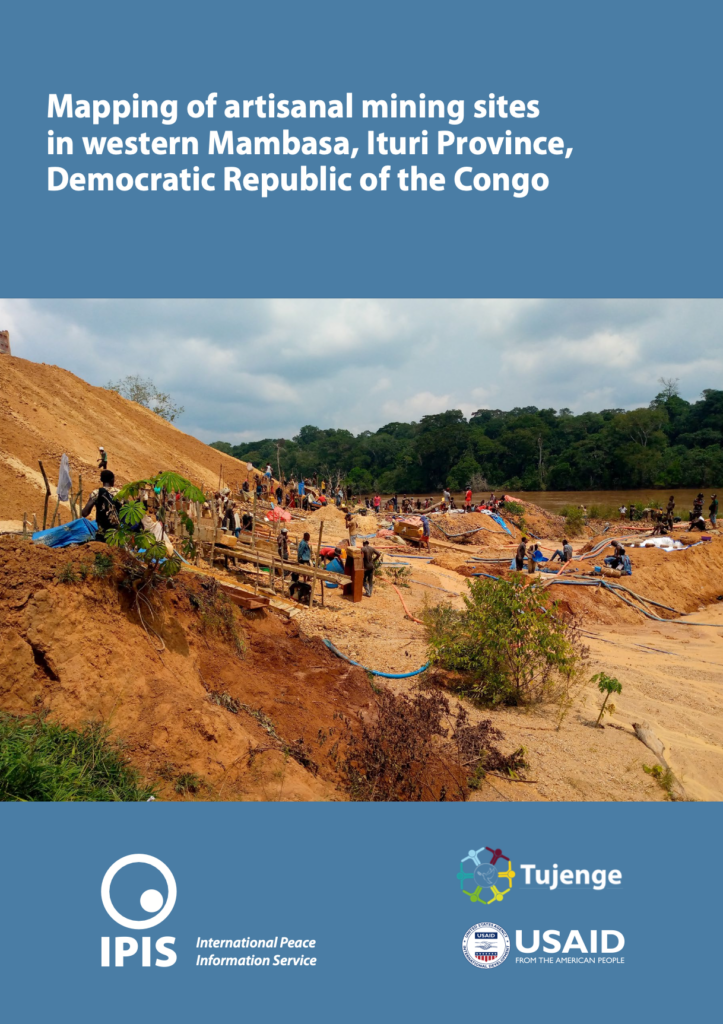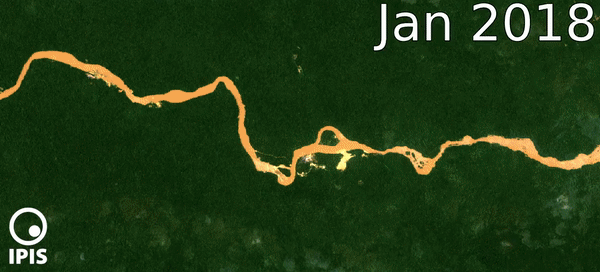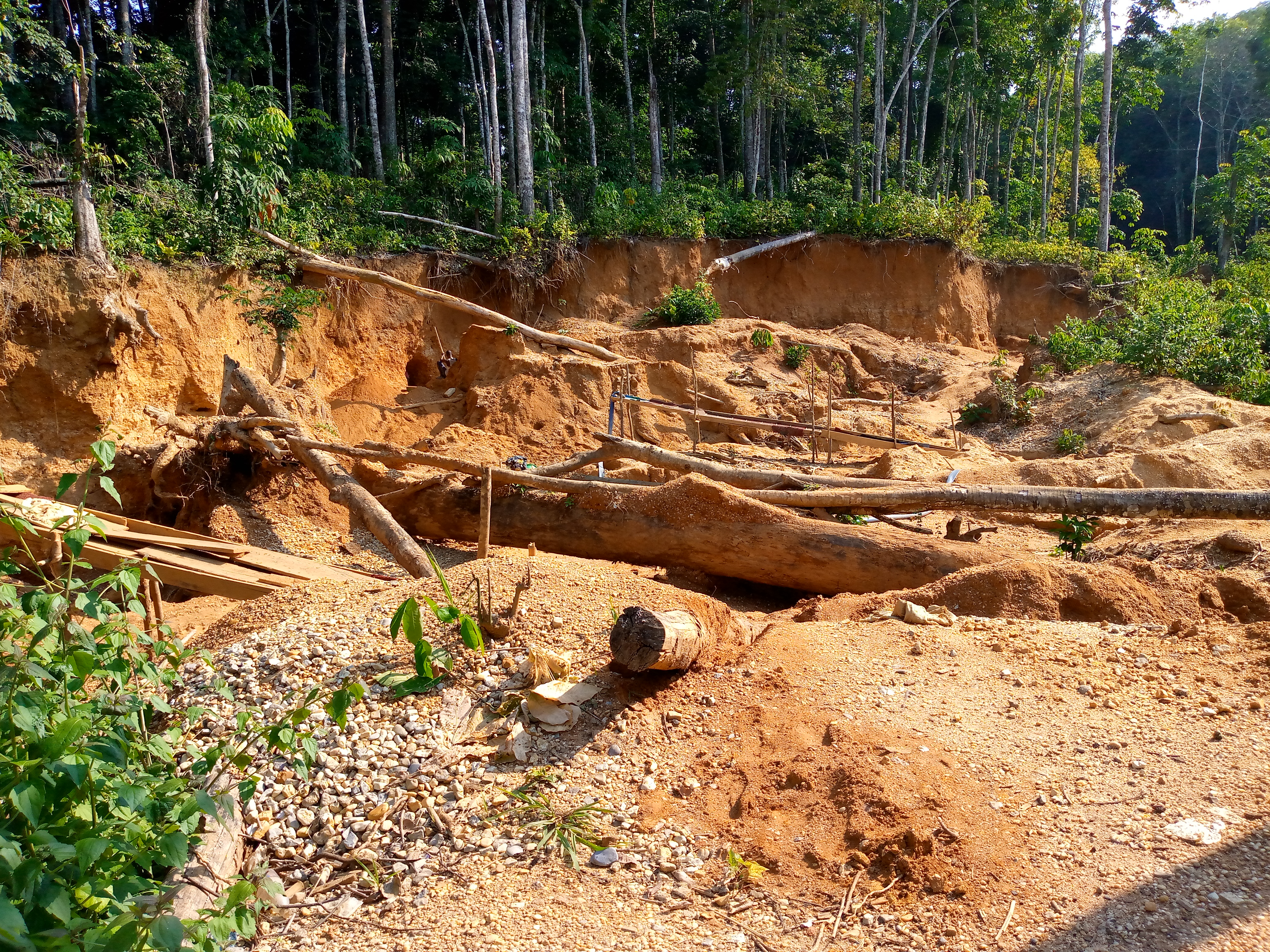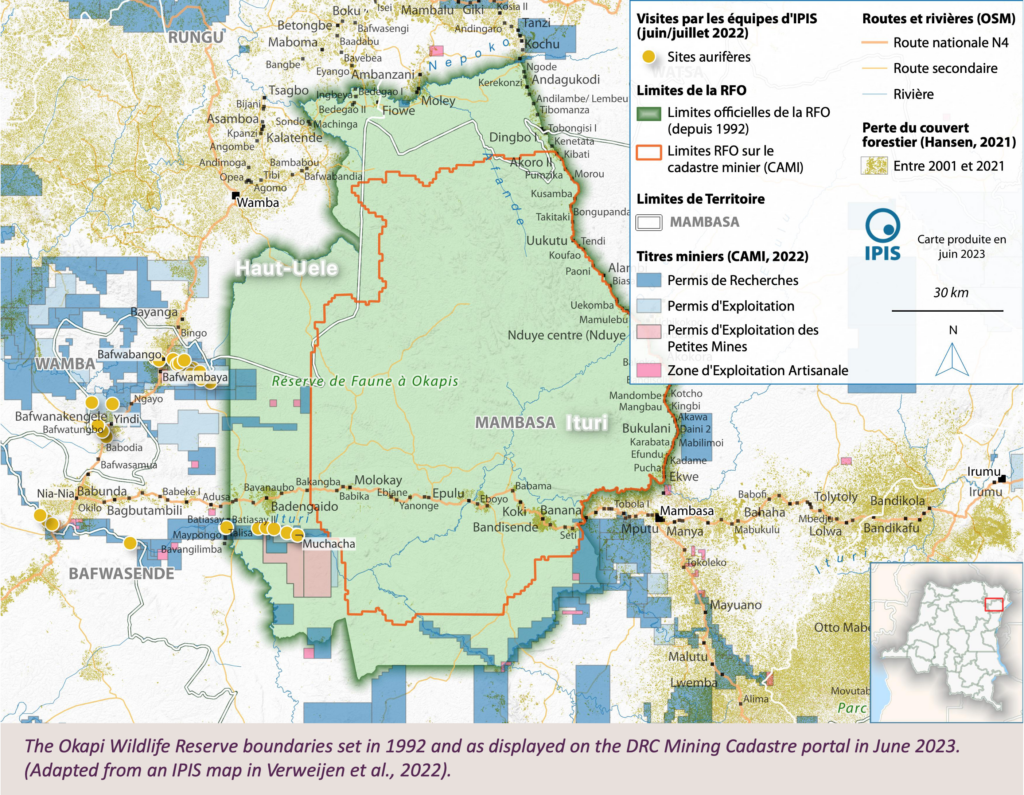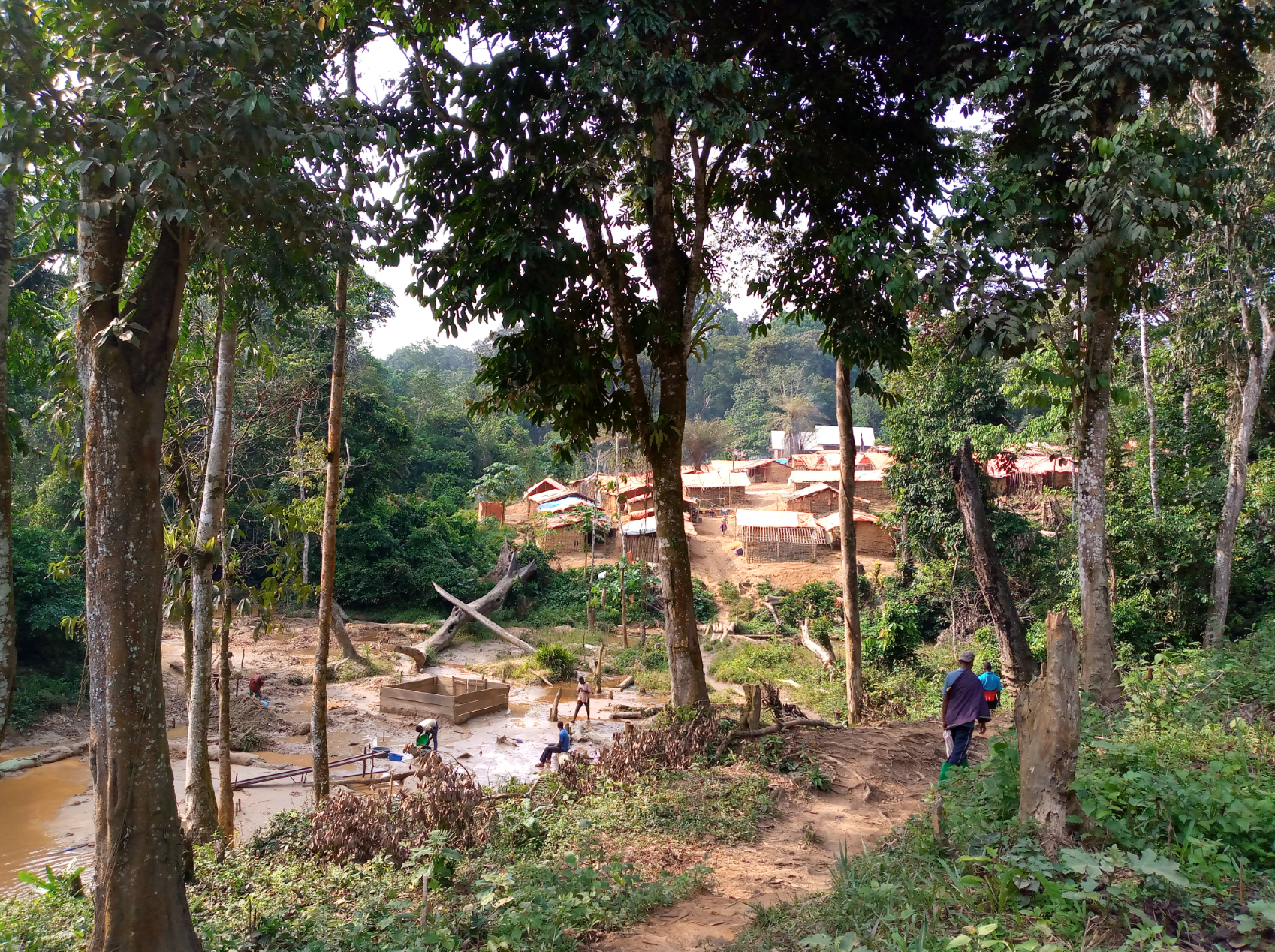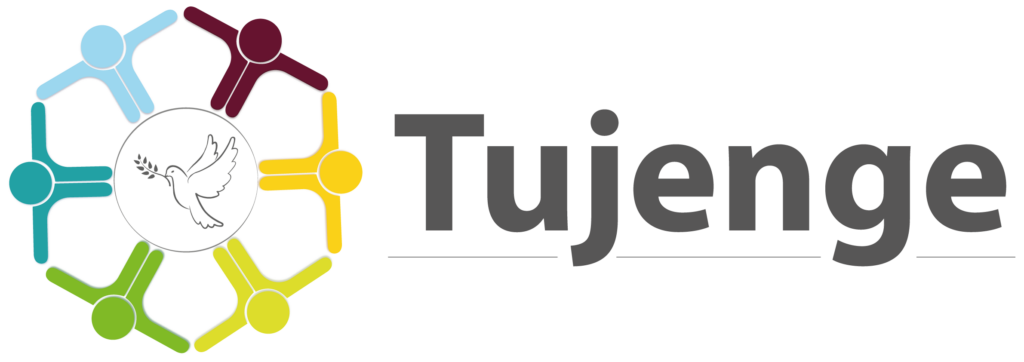The western part of Mambasa territory, in Ituri province, has been overlooked by national authorities and international partners. This despite major expansions of artisanal and small-scale gold mining (ASM) operations, including in the Okapi Wildlife Reserve (OWR). These mining operations have caused tensions between native inhabitants, miners, armed actors, officials and conservationists. Seeking to provide an in-depth and actionable study of the area’s challenges, IPIS investigated 41 mines in western Mambasa to evaluate how the growth of the ASM sector has impacted security, environmental and socio-economic issues in communities living in and nearby the OWR.
Security
Despite the expulsion of various armed groups over the past few years, a climate of insecurity in Mambasa persists due to undisciplined FARDC forces being contracted as security for privately-owned mining concessions that exist next to or in the OWR. These soldiers extort local communities at illegal roadblocks and expel miners from ASM sites on behalf of their employers. Clashes also occur between rangers from the Congolese Institute for the Conservation of Nature (ICCN), who protect the OWR and undisciplined FARDC forces securing illegal mining sites located inside the reserve.
Environment
Satellite images and observations on the ground demonstrate an intensification of mining operations along the Ituri river. This has adverse consequences for the environment, including the diversion of the river from its riverbed. Widespread use of mercury and deforestation have resulted in the pollution of the river and the destruction of surrounding ecosystems. The presence of miners also fuels poaching practices as mining operations drive the demand for bush meat, which directly impacts a plethora of endangered species such as chimpanzees and pangolins.
Society and Governance
Government oversight and regulation are routinely undermined. Undisciplined FARDC forces, contracted by private companies to secure illegal exploitations often bar the access of mining sites to official agents. SAEMAPE agents have been refused access to at least 50% of mining sites mapped by IPIS in western Mambasa.
A recent map of the Okapi Wildlife Reserve published by the Congolese Mining Cadastre (but not approved by the Congolese Government) has also caused serious confusion. Shrinking the size of the reserve, the map places various mining concessions outside of its boundaries, thus legitimizing their continued operation.
In conclusion, to restore peace and stability in western Mambasa, artisanal miners active in the Okapi Wildlife Reserve must receive opportunities to work elsewhere, which will require local, provincial and national mining authorities to collaborate to open ‘Artisanal Mining Zones’ (ZEAs). IPIS also recommends national and international partners to develop new income generating activities. Finally, legal measures should be taken against small-scale companies illegally exploiting the natural resources of the OWR.
USAID’s Partnership for the Development of Eastern Congo (P-DEC) has been made possible thanks to the support of the American people through the United States Agency for International Development (USAID). The project is implemented by Mercy Corps and in partnership with International Alert, the Wildlife Conservation Society, the Alliance for Responsible Mining, the International Peace Information Service, HIVE, the Fair Congo Foundation, APROHDIV, Justice Plus, SOFEPADI, CORACON, the Pole Institute, and other partners.

